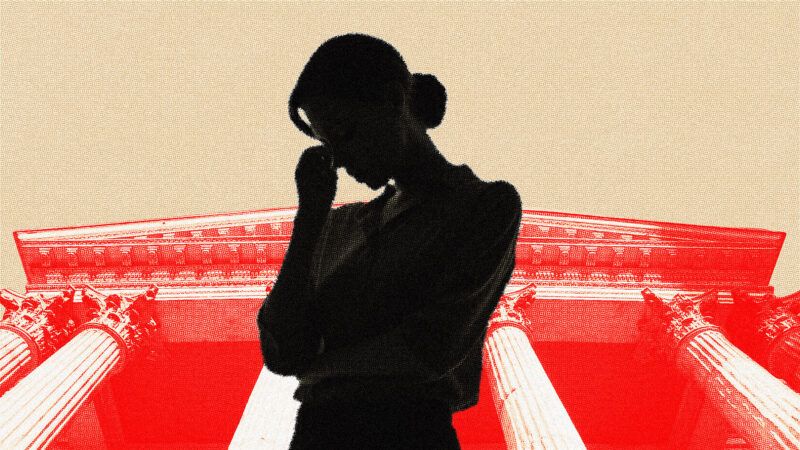How Vexatious Government Demands Can Lead Your Bank To Refuse To Do Business with You
The government treats its endless appetite for information about citizens as more important than people's ability to conduct business in a normal fashion.

Dealing with big businesses whose services you need to conduct the basics of everyday economic life can be frustrating when those businesses make seemingly arbitrary decisions that cripple your ability to function in a modern economy. In general, the incentives of businesses are to, well, do business with customers.
It's not surprising, then, that a recent New York Times story giving infuriating details of innocent Americans being cut off by their banks reveals that the real cause of the banks' seemingly arbitrary behavior is government rules designed to make sure it knows everything it can about citizens' banking business, to discourage big cash transactions, and to ensure businesses the government disapproves of have as difficult a time as possible without being explicitly banned.
As the Times puts it, when citizens suddenly find their banks exiling them, it's because "a vast security apparatus has kicked into gear, starting with regulators in Washington and trickling down to bank security managers and branch staff eyeballing customers."
The Times story highlights specific aggravating stories of Americans losing their banking and credit card services over such nonsense as regularly having cash deposits that are near, but below, the government's legally mandated $10,000 limit that triggers filing special paperwork with the feds (despite those same businesses also frequently going over that limit and filing the necessary paperwork when they do); for getting direct deposit income from a cannabis company; for receiving frequent cash wires from your parents in Nigeria to help with your rent; for making frequent cash withdrawals in the multiple thousands to pay a contractor who wanted cash; for having a past criminal conviction for using counterfeit money; and for using a bank account to move money among a small private community loan pool for those less able to access the normal loan market.
J.D. Tuccille reported for Reason back in August about House committee investigations into how government pressure might have led banks to provide the feds with private information about January 6 protesters. As Tuccille wrote, the problem of banks conspiring with government against its customers is wider than any one incident:
"jawboning" is easily applied to any heavily regulated industry, including finance. It can also be used to encourage more than snooping, such as outright denial of service.
"According to our data, nearly 2 out of 3 people who earn money in the adult industry have lost a bank account or financial tool, and nearly 40% have had an account closed in the past year," the Free Speech Coalition, an adult-industry trade group, reported of the results of a survey earlier this year.
While the report didn't speculate as to the cause of the closures, the problem looks very much like a continuation of the Obama administration's Operation Choke Point, under which federal agencies including the Department of Justice and the Federal Deposit Insurance Corporation leaned on banks to deny services to businesses which government officials just didn't like.
Read more Reason reporting on Operation Chokepoint here.


Show Comments (30)